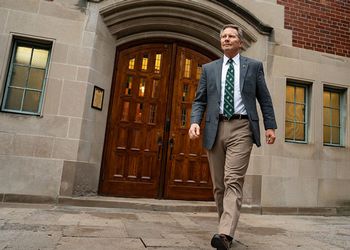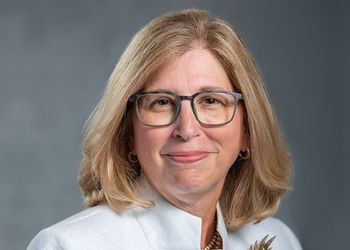President's Message: Partnering in Michigan for a better tomorrow

To appreciate how Michigan State University’s rural 19th-century land-grant mission remains highly relevant in the urban 21st century, you need look no farther than Flint. Michigan State has been partnering with the city for more than a century, working together to solve local problems and to empower residents to reach their full potential.
The response to Flint’s municipal water crisis is the latest example of our coming together to meet immediate needs and to create long-term solutions. It’s also an example of how MSU’s commitment to its mission of education, research, and outreach and service makes an extraordinary impact on the state and the world around us.
One Spartan who has demonstrated that kind of commitment to the children and families of Flint is the College of Human Medicine’s Dr. Mona Hanna-Attisha, profiled in this issue. You’ll read how she and a team of MSU and Hurley Children’s Hospital doctors and researchers discovered elevated lead levels in Flint children and intervened on their behalf.
Hanna-Attisha is the director of the pediatric residency program at Hurley and now will lead the development of the MSU/Hurley Pediatric Public Health Initiative, a long-term program to monitor and support the health and development of Flint’s children.
Even before she became one of the dedicated faces of the Flint crisis response, Hanna-Attisha was positioned to make a difference, armed with the knowledge, networks, and indeed the fortitude necessary to rise to the challenge. She and other MSU faculty and researchers, along with a host of programs, provide a firm foundation that enabled us to launch a swift response to the needs of the community. That’s due in large measure to the College of Human Medicine’s expansion of its public health program in Flint several years ago with the support of our longtime community partner, the Charles Stewart Mott Foundation.
Rooted in partnerships with local hospitals that have provided training for physicians for some 40 years, the program is a textbook example of how Spartans partner with communities to co-create solutions that meet their specific needs. It illustrates the difference MSU’s community-based assets make throughout Michigan, whether we’re talking about health care, agriculture, the environment, education, entrepreneurship, or municipal finance.
Spartans are there, and we’ll be there tomorrow. Just as we’ll be in Flint long after the national spotlight has dimmed.
Lou Anna K. Simon, PhD
President, Michigan State University



